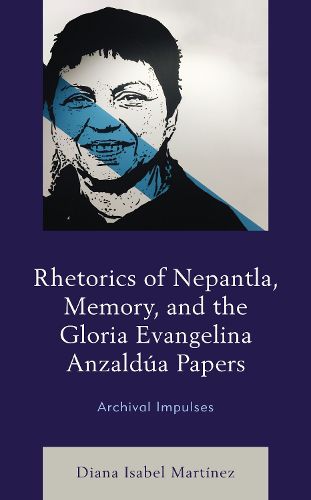Readings Newsletter
Become a Readings Member to make your shopping experience even easier.
Sign in or sign up for free!
You’re not far away from qualifying for FREE standard shipping within Australia
You’ve qualified for FREE standard shipping within Australia
The cart is loading…






Rhetorics of Nepantla, Memory, and the Gloria Evangelina Anzaldua Papers: Archival Impulses explores the intersection of Chicana/o/x studies, Latina/o/x studies, archival studies, and public memory by examining the archival homes of cultural critic Gloria Anzaldua. This book illustrates how her archive mirrors her philosophy of theories of the flesh and contains objects that, when placed together by the rhetor, perform the embodied ways of knowing of which she writes. Anzaldua's archive is a generative space that requires a rhetorical perspective that is expansive, intersectional, and flexible enough to handle interactions between the objects found within and across archives. This book provides an account of how to discuss these interactions in theoretically and experientially meaningful ways. From the analysis of Anzaldua's public speeches, the parallels between her birth certificate and creative writing, the planning documents of the 1995 Entre Americas: El Taller Nepantla artist retreat, and more, the author contributes to the fields of archival methods, gender studies, Anzalduan scholarship, public memory, and rhetorical studies by illustrating why engaging the archives of women of color matters.
$9.00 standard shipping within Australia
FREE standard shipping within Australia for orders over $100.00
Express & International shipping calculated at checkout
Rhetorics of Nepantla, Memory, and the Gloria Evangelina Anzaldua Papers: Archival Impulses explores the intersection of Chicana/o/x studies, Latina/o/x studies, archival studies, and public memory by examining the archival homes of cultural critic Gloria Anzaldua. This book illustrates how her archive mirrors her philosophy of theories of the flesh and contains objects that, when placed together by the rhetor, perform the embodied ways of knowing of which she writes. Anzaldua's archive is a generative space that requires a rhetorical perspective that is expansive, intersectional, and flexible enough to handle interactions between the objects found within and across archives. This book provides an account of how to discuss these interactions in theoretically and experientially meaningful ways. From the analysis of Anzaldua's public speeches, the parallels between her birth certificate and creative writing, the planning documents of the 1995 Entre Americas: El Taller Nepantla artist retreat, and more, the author contributes to the fields of archival methods, gender studies, Anzalduan scholarship, public memory, and rhetorical studies by illustrating why engaging the archives of women of color matters.